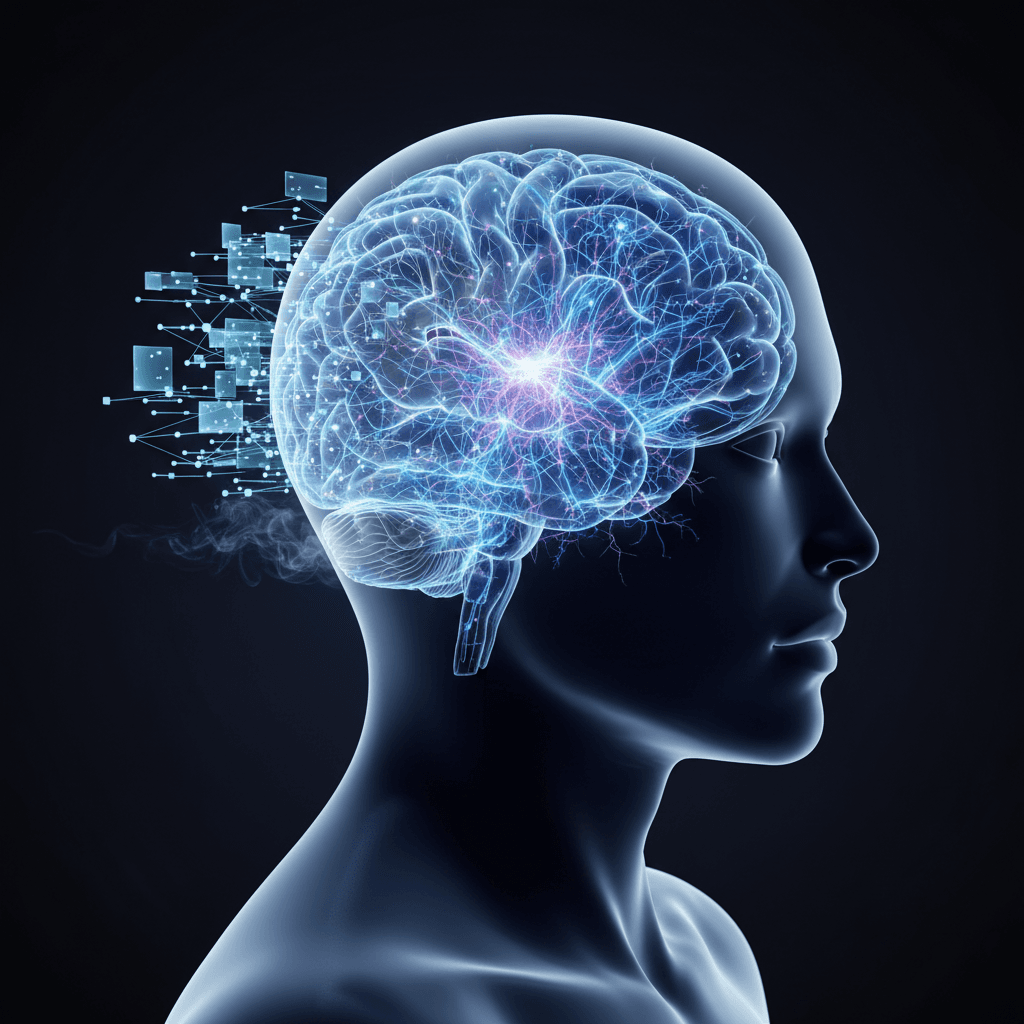MIT Study: AI Writing Tools Reduce Brain Activity, Create Cognitive Debt
MIT study finds AI writing tools suppress brain activity, leading to "cognitive debt" that diminishes critical thinking and memory.
October 1, 2025

A recent study from the Massachusetts Institute of Technology has revealed that using artificial intelligence, specifically large language models like ChatGPT, for complex cognitive tasks such as writing can lead to a significant reduction in brain activity.[1][2][3][4] The research suggests that this "cognitive offloading" not only diminishes mental effort during the task but may also result in a "cognitive debt," making it more challenging for individuals to perform similar tasks independently later on.[5][6] These findings raise critical questions about the long-term impact of increasing reliance on AI tools for knowledge work and in educational settings, pointing to potential trade-offs between short-term efficiency and the cultivation of essential cognitive skills like critical thinking and memory.[7][3][6]
The study, titled "Your Brain on ChatGPT: Accumulation of Cognitive Debt when Using an AI Assistant for Essay Writing Task," involved 54 university students from the Boston area who were tasked with writing essays under different conditions.[5][8][6][9] The participants were divided into three groups: one that could only use their own minds (the "Brain-only" group), another that could use a traditional search engine, and a third that was assisted by OpenAI's GPT-4o model.[1][3][6] To measure cognitive engagement, the researchers used electroencephalography (EEG) to monitor the participants' brain activity throughout the writing process.[1][3][9] The results were striking, with EEG data showing that the group using ChatGPT exhibited the weakest neural connectivity, indicating a lower level of cognitive effort compared to both the search engine and the "Brain-only" groups.[1][3][10][9] The unaided group, by contrast, displayed the strongest and most widespread neural networks, particularly in brain regions associated with memory, concentration, and problem-solving.[5]
A key concept to emerge from the research is "cognitive debt," which describes a potential long-term decline in an individual's ability to think critically and solve problems independently after prolonged reliance on external AI aids.[5] The study's design included a fourth session where some participants switched groups, providing further insight into this phenomenon.[5][9] When students who had previously relied on ChatGPT were asked to write an essay without assistance, they struggled more and their brain activity remained depressed, suggesting their mental faculties for the task had been diminished.[1][5][2] Conversely, students who had first engaged in the writing task using only their own cognitive resources showed improved performance and even higher neural connectivity when later given access to the AI tool.[1][5] This suggests that the timing and manner of AI integration are crucial; using AI to refine or enhance work that has already been thoughtfully considered may be more beneficial than using it from the outset.[8]
The implications of these findings are particularly significant for the education sector and the future of knowledge work.[7] The study highlights a potential risk that over-reliance on AI writing tools could weaken students' abilities to think critically, recall information, and construct original arguments.[3] This was further evidenced by the fact that participants using ChatGPT had significantly poorer recall of the essays they had written, with a large majority unable to quote a single sentence from their own text.[3] Furthermore, these participants reported a lower sense of ownership and satisfaction with their work.[5][8] The essays produced with AI assistance were also found to be more homogenous, lacking in diverse vocabulary and originality, which raises concerns about a potential decline in ideational breadth and creativity if such tools are used uncritically.[11][4][10]
In conclusion, the MIT study provides empirical evidence that while generative AI tools can offer significant convenience and efficiency, they may come at the cost of reduced cognitive engagement and the potential for long-term skill degradation. The research underscores the necessity for a mindful and strategic approach to integrating AI into workflows and educational practices.[3] Rather than simply offloading mental tasks to AI, the focus may need to shift towards using these powerful tools to augment human intellect after a foundation of independent thought has been established. As AI becomes increasingly embedded in daily life, understanding its effects on human cognition will be paramount in ensuring that technology serves to enhance, rather than diminish, our innate mental capabilities. The study's authors emphasize the need for further longitudinal research to fully grasp the long-term impacts of AI on the human brain.[6]